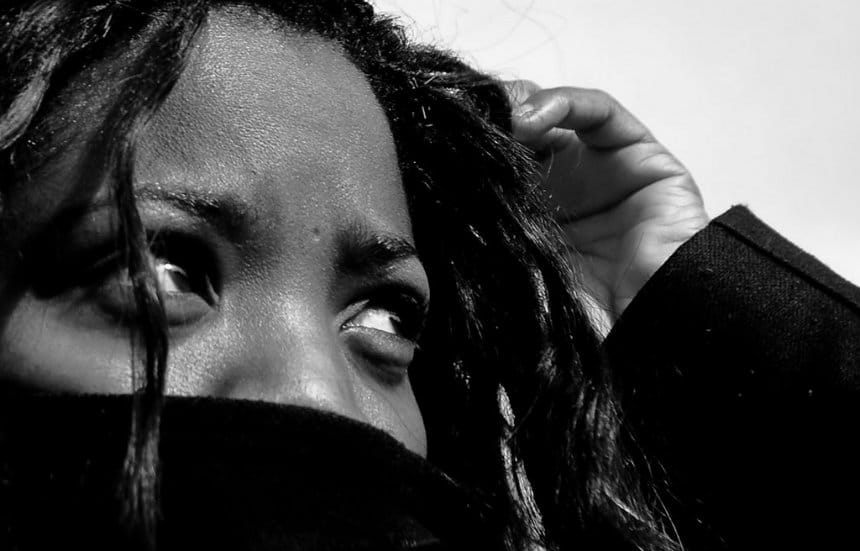
BERKSHIRE, England (WOMENSENEWS)—Olivia isn’t white, into “emo” music or shy. This is part of the reason it took her so long to come clean to her parents about the scars on her arm: girls like her didn’t fit the self-harmer stereotype in her head.
“There is also a stereotype that it only affects a few, weak people,” she said during an interview with Teen Voices over a selfharmUK online forum. “But that’s not always true.”
The 17-year-old black Londoner developed depression, which led her to cutting her arms. She stopped cutting in the middle of 2015, after her parents helped her find therapy to treat her depression.
She prefers to keep her identity private by taking the pseudonym of Olivia Pope, the black protagonist of the TV show “Scandal.”
At the same time, she insists that self-harm needs to become a more public conversation.
“We need to address situations like mine, to make people know mental health is incredibly, extremely important and has got to be discussed,” she said.
Discrimination and Depression
In the United Kingdom 3 in 4 girls between the ages of 11 and 21 say that self-harming is their generation’s biggest health issue, according to a 2015 study by GirlGuiding.
Self-harming, which can involve cutting, burning and hitting oneself, is often a sign of depression, anxiety or suicidal intent.
The effects of these mental illnesses can be amplified for those in marginalized communities, where there is a strong connection between race-based discrimination and mental illness.
Ninety three percent of black and ethnic minorities with mental illnesses have experienced discrimination, yet 80 percent feel unable to speak about these experiences, according to Time to Change, a charity based in London.
Part of that may be explained by the scarcity of groups in the U.K. that are addressing the unique mental health needs of black Britons.
African Caribbean Mental Health Services, a 24-year-old charity which purposely located itself in an impoverished section of Manchester, is one of the few. It runs a women’s group and a group aimed at teens. Black & Asian Therapist Network, an online network with nation-wide services, is the U.K.’s biggest independent organization that connects blacks and Asians to culturally sensitive care providers.
A newcomer is Recovr, a site that has announced plans to launch in June and aims to “help young black adults find black therapists and counsellors who relate to their experiences.”
Mental health authorities consistently point out that self-harmers are from all kinds of backgrounds and ethnicities.
However, a 2010 paper published in the British Journal of Psychiatry found that black girls are more likely to self-harm than any other group surveyed in the emergency rooms of three big U.K. cities. In Manchester, for instance, rate for self-harm among black women was 10.3 per 1,000 compared to 6.6 per 1,000 for white people as a whole. Authors also found black British girls the least likely to receive assessment or specialist care.
Young black women “may not communicate their distress to clinical staff as much, and be less likely to admit to depression,” writes Dr. Jayne Cooper, the lead author of the report.
In the study, Cooper also found that black and minority ethnic groups “may find themselves disillusioned with the services they receive, and so be reluctant to return to hospital if they self-harm again.”
Cooper’s research was followed by a 2013 MIND report that found that people of color said staff weren’t diverse enough.
It also backs up findings from a 2011 Care Quality Commission study, which found that people from black communities generally have a worse experience of the mental health system than their white counterparts. At the time, Dame Jo Williams, chairperson of the study, called for greater attention to such factors as socio-economic disadvantages and whether patients were being referred from the criminal justice system.
Less Access to Care
Fifty percent of black Britons live in low-income families, according to a 2010 finding by Poverty.org.uk. Common deprivations, such as poor nutrition and fewer chances at a high-quality education, link said-poverty to mental illness.
Cal Strode of the Mental Health Foundation, which is based in London and provides services throughout England, Scotland, Wales and North Ireland, agrees it is harder for black girls and women to navigate the system of mental healthcare. “The result is that women of black ethnic backgrounds do not receive the support and interventions needed, which impacts BME (black and minority ethnic) women’s wellbeing,” she said in an email interview.
The foundation acknowledges that the healthcare system could be improved in this area. “Services are not culturally aware enough and BME communities hesitate to access services due to stigma,” Strode wrote.
Additionally, discrimination—especially the intersections of racism, sexism and colorism—can trigger mental health issues in black teenage girls and women. “On the whole, our research tells us that black women are more exposed to harmful experiences and stressors than non-BME women,” Strode said.
However, Strode says there is still not enough research on why black females are having mental health problems more commonly and receiving less mental healthcare.
That leaves many girls in the situation that Olivia used to find herself: feeling alone and inclined to blame herself. “As a black girl,” she said, “I just felt like I was letting down, I don’t know, MLK or Rosa Parks or my immigrant parents; people who have done everything for me to live a better life and be strong – not to wallow in self-pity!”


